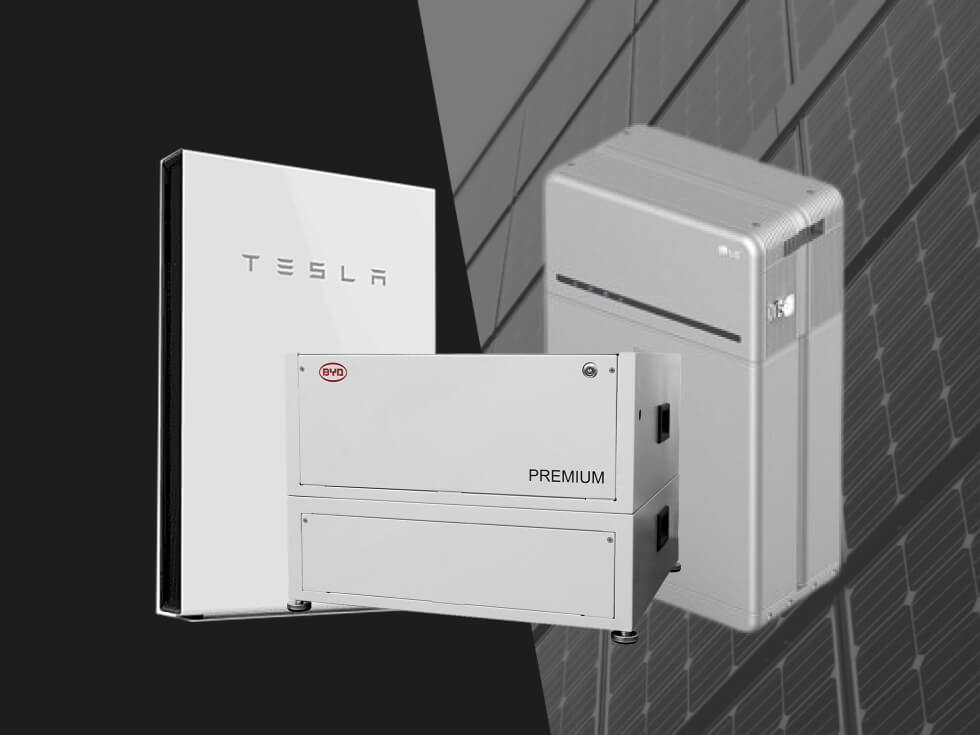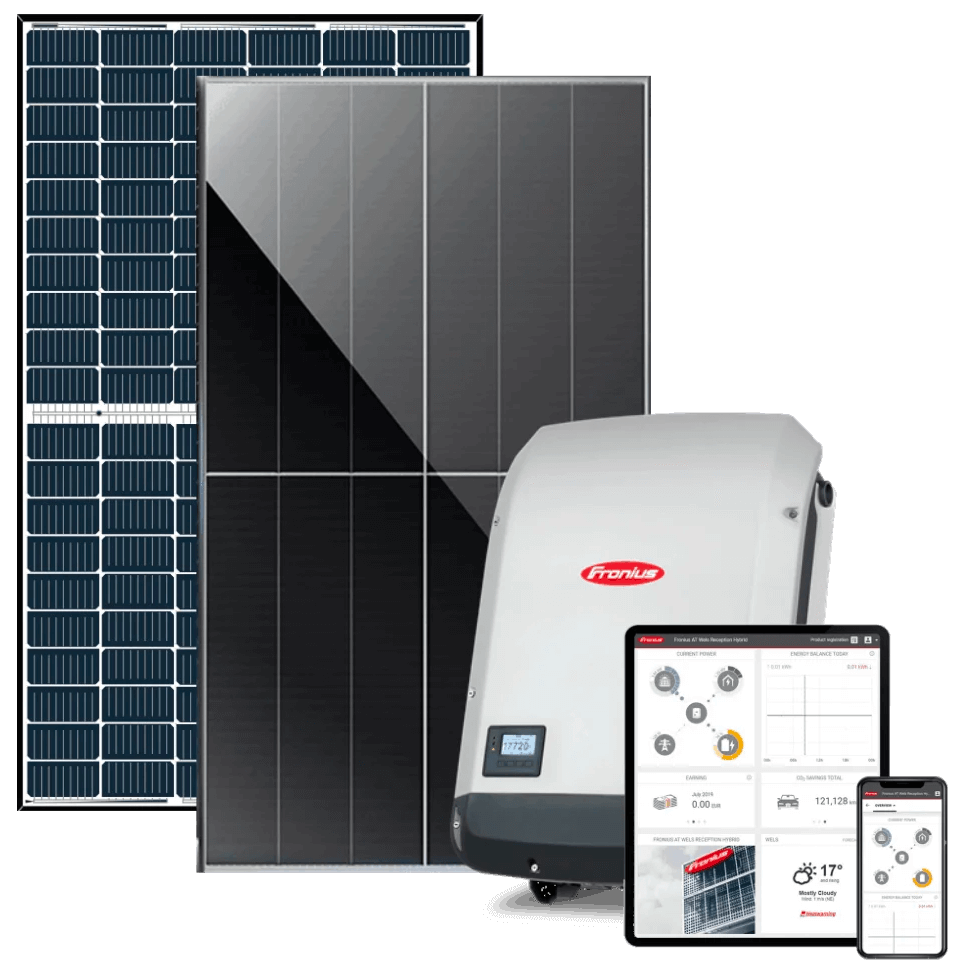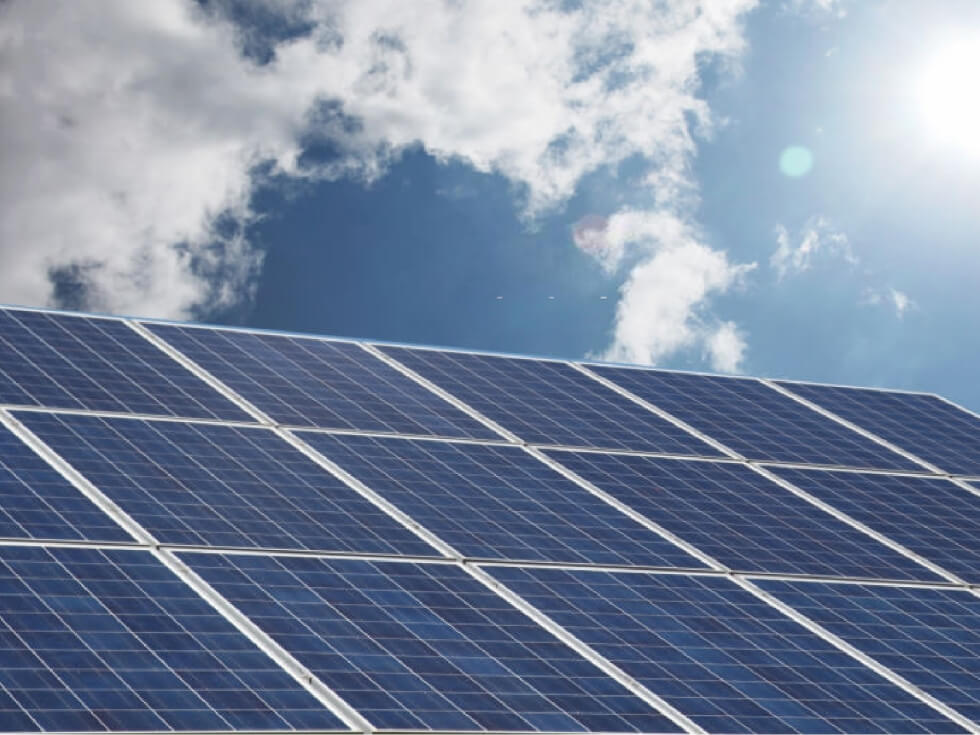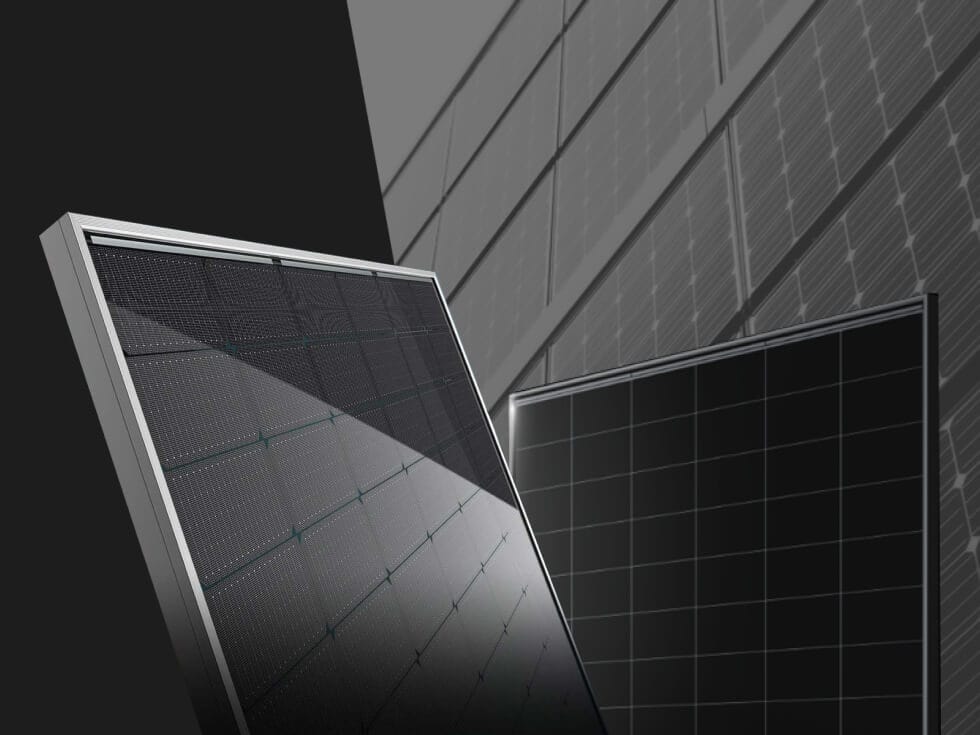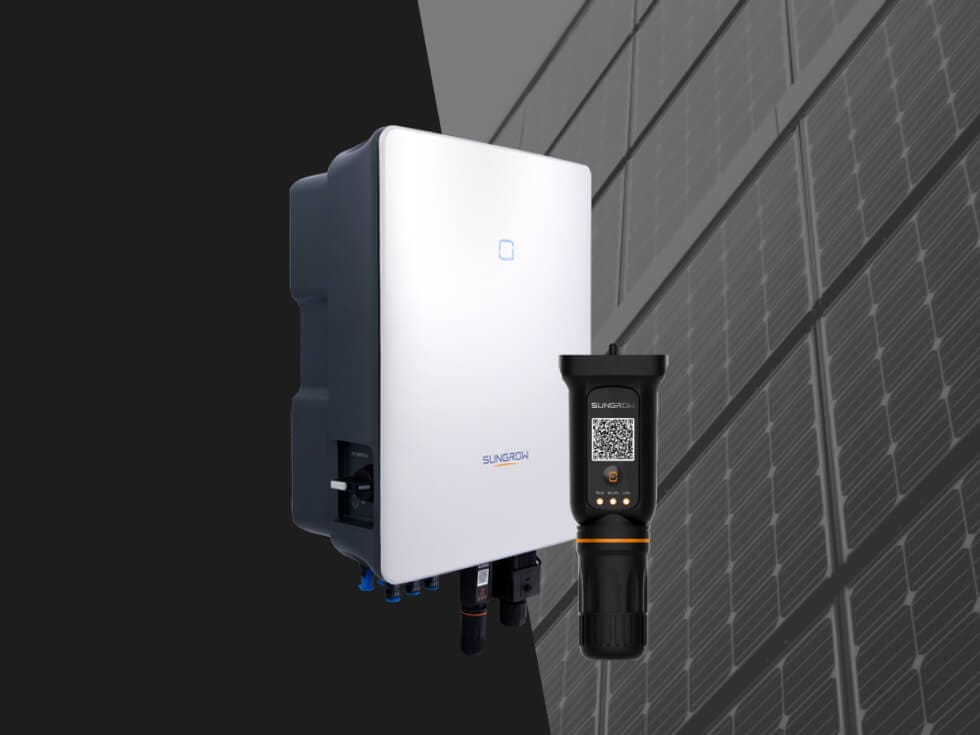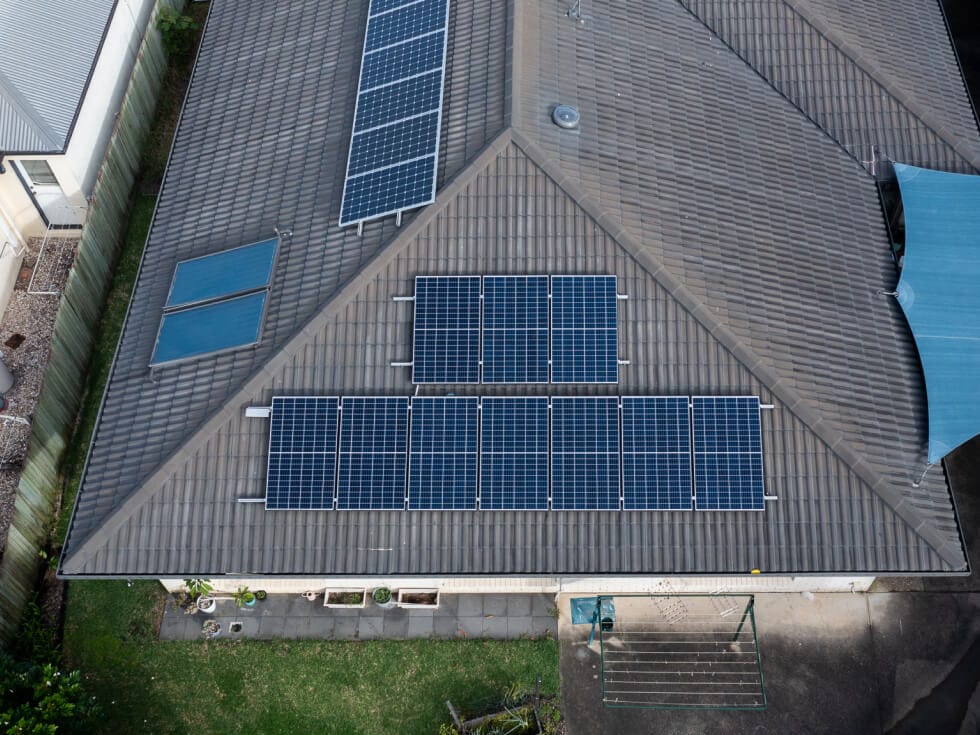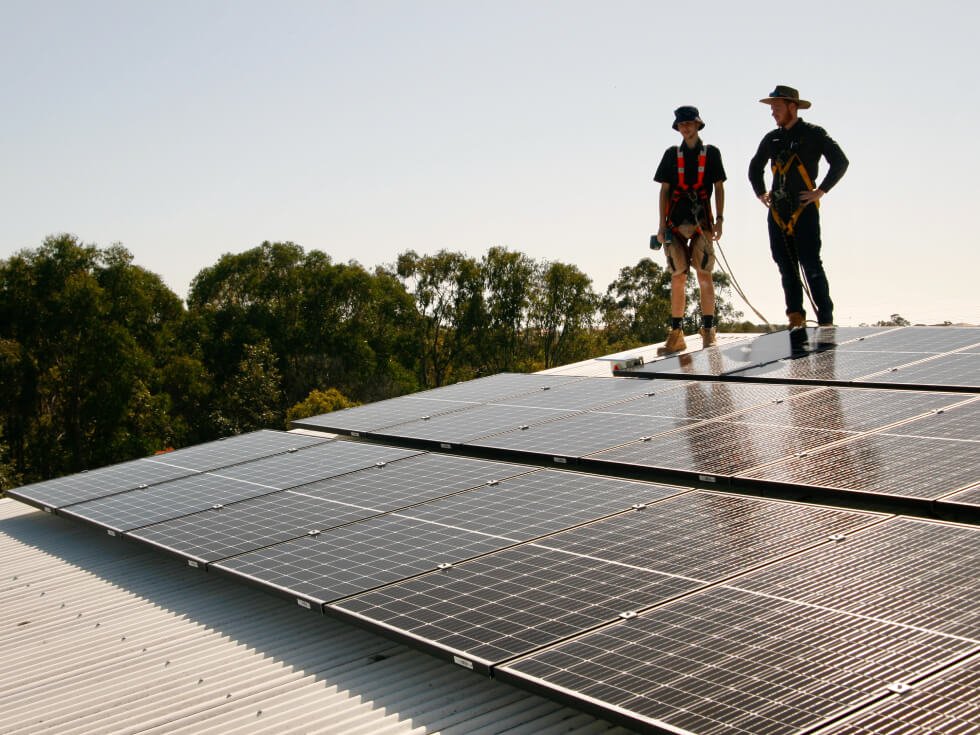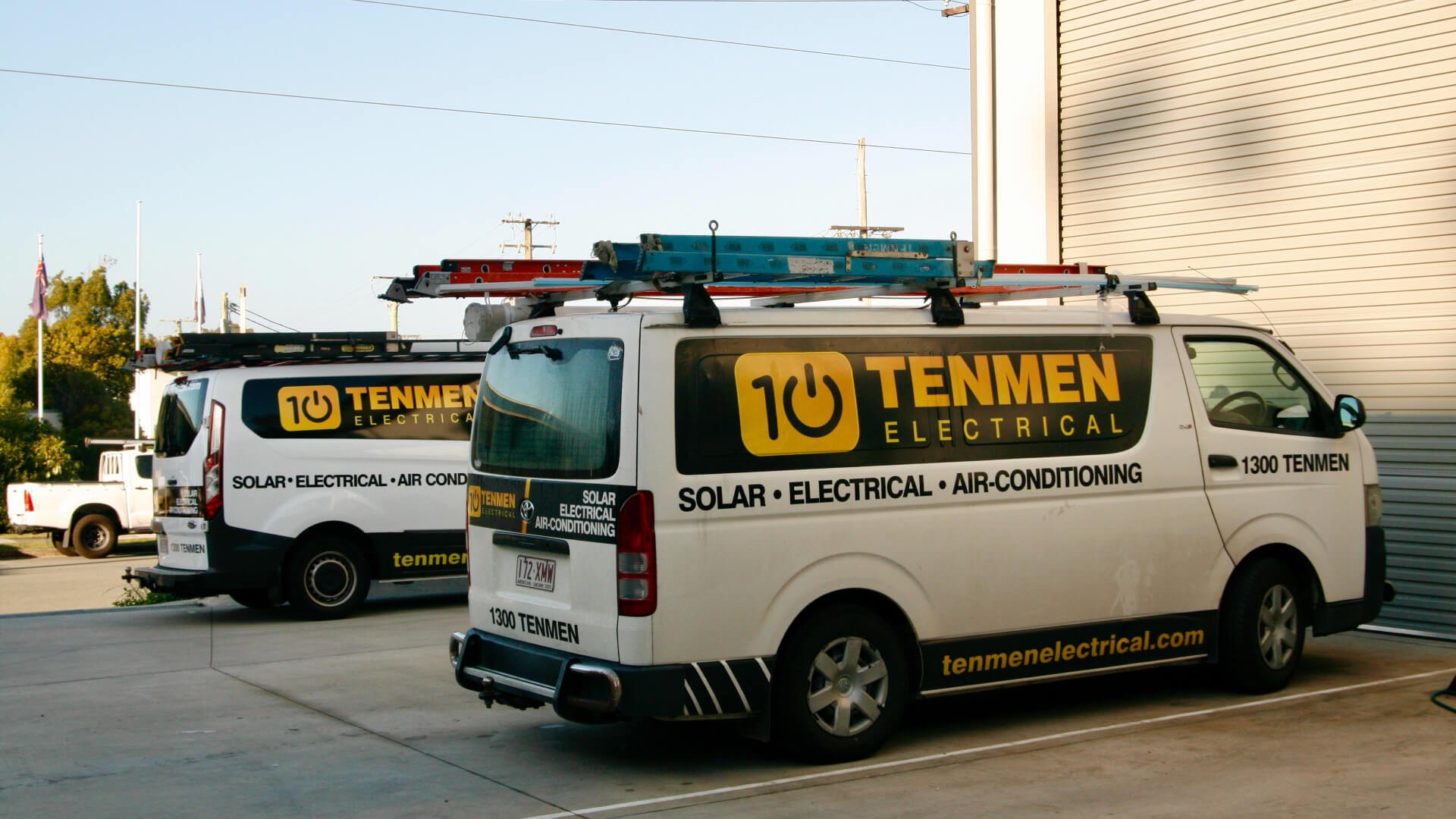Australia is embracing a greener future with breakneck speed. Did you know that the number of home storage batteries installed in the country has surpassed 250,000 as of 2024? Considering the recent energy price rises, this trend is not likely to slow down any time soon. So, in this guide, we will explore the benefits and options for solar energy storage solutions, empowering you to take more control of your energy production and consumption.
Key Takeaways:
- Home storage batteries are gaining popularity in Australia, with over 250,000 installations as of 2024.
- Solar energy storage solutions allow homeowners to store unused electricity generated by their solar panels.
- By harnessing the power of solar energy and utilising storage solutions, homeowners can reduce their reliance on the grid and potentially save more on electricity bills.
- The cost of home solar batteries can vary, and it’s essential to consider long-term savings and benefits when evaluating different options.
- Government rebate schemes and Virtual Power Plants (VPPs) can make solar batteries more economically viable and enhance the overall benefits of home solar storage.
How Do Home Solar Batteries Work?
Home solar batteries play a crucial role in harnessing the power of the sun and maximising the benefits of solar energy. These batteries are designed to capture any unused solar power generated during the day and store it for later use at night or on low-sunlight days. By storing excess electricity, homeowners can significantly reduce their reliance on the grid and enjoy the advantages of running their homes substantially on solar power.
Integrated into the overall solar panel system, home solar batteries are typically installed to work in conjunction with grid-tied systems. This means that while the battery stores excess energy, the home is still connected to the grid to ensure a continuous power supply. Grid-tied battery systems give homeowners the advantage of energy independence without the worry of power outages. When the solar panels produce more electricity than the home requires, the excess power is stored in the battery for later use, helping to offset energy costs and reduce reliance on traditional sources of electricity.
“Home solar batteries offer the advantage of independence from the grid. By storing excess electricity, homeowners can run their homes substantially on solar power, reducing their reliance on the grid and potentially saving more on electricity bills.”
The functionality of home solar batteries is made possible through a combination of advanced technology and high-quality components. The battery stores the solar energy in the form of chemical energy, which can be converted back into electrical energy when needed. This stored energy can be discharged to power the home during the evenings or when the solar panels are unable to generate enough electricity.
In addition to providing energy independence, home solar batteries also offer environmental benefits. By utilising stored solar energy, homeowners can offset their carbon footprint by reducing their reliance on fossil fuel-based electricity. This not only helps to combat climate change but also contributes to a cleaner and more sustainable energy future.
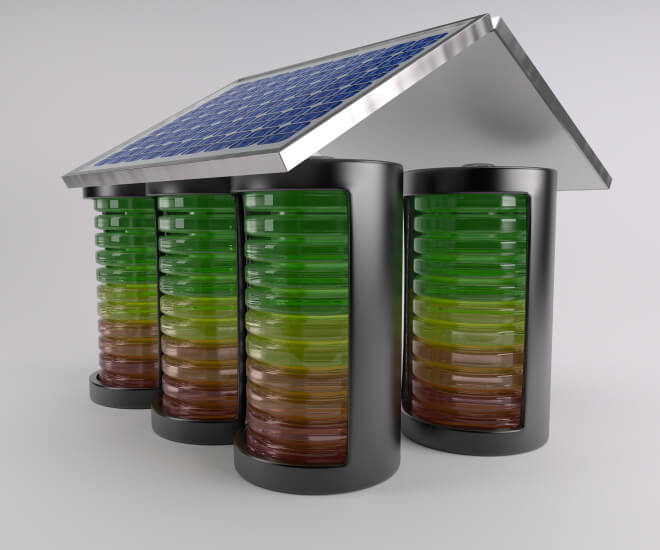
How Much Does a Home Solar Battery Cost?
The cost of home solar batteries can vary depending on factors such as battery capacity, brand, and installation. On average, a battery with a capacity of around 10kWh can cost between $9,000 and $13,000, including basic installation. Higher-end options with additional integrated components may cost more.
When considering the cost of home solar batteries, it’s important to weigh it against the potential long-term savings and benefits they offer. Investing in solar batteries can represent a higher upfront investment, and when evaluating the return on investment (ROI) and payback period, it’s crucial to consider the potential savings, which can vary depending on individual circumstances and energy usage patterns. Additionally, solar battery systems provide a reliable backup power source during outages, ensuring uninterrupted power supply.
To ensure you get the best deal, we recommend conducting a thorough evaluation from reputable installers. They can provide you with an accurate assessment of your energy consumption, potential savings and cost estimates tailored to your specific needs and requirements.
Are Home Solar Batteries a Worthwhile Investment?
The economic viability of home solar batteries depends on several factors. While the upfront cost of batteries can still be relatively high, the return on investment can be substantial in certain situations. Here are some key considerations:
- Battery cost: The initial cost of a home solar battery is an important factor to consider. Prices can vary depending on the brand, capacity, and installation requirements. It’s essential to obtain quotes from reputable installers to find the best deal for your specific needs.
- Payback time: The payback period for home solar batteries refers to how long it takes for the cost of the battery to be offset by the savings on your electricity bills. While the payback time can vary, households with high power consumption often see a faster return on investment.
- Warranty period: Home solar batteries typically come with a warranty that guarantees their performance and longevity. Longer warranty periods provide more security and peace of mind, ensuring that the investment will last for many years.
While the financial aspect is significant, there are other benefits to consider when deciding if home solar batteries are a worthwhile investment:
- Protection against blackouts: Home energy storage systems can provide backup power during blackouts, ensuring that essential appliances and devices can still operate. This can be particularly valuable in areas prone to power outages.
- Maximising solar panel benefits: Solar battery storage allows you to store excess energy generated by your solar panels and use it when the sun is not shining. This maximises the benefits of your solar panel system and reduces reliance on the grid.
- Energy independence: Investing in home energy storage gives you the opportunity to have greater control over your energy usage and reduce your dependence on traditional energy sources. This can be a significant step towards a more sustainable and environmentally-friendly lifestyle.
Ultimately, the decision to invest in home solar batteries goes beyond financial considerations. It involves evaluating your energy needs, priorities, and long-term goals. By carefully weighing the economic viability and other factors, you can determine whether home solar batteries are a worthwhile investment for you and your household.
Rebates, Subsidies, and Virtual Power Plants
Government rebate schemes and energy trading systems can make home solar batteries more economically viable for some households. It is worth exploring rebate or special loan schemes available in your state or territory, such as the Solar Homes Program in Victoria, the Home and Business Battery Scheme in the Northern Territory and the Battery Booster rebate for householders in Queensland, which can provide up to $4,000 towards the installation of an approved solar battery.
Additionally, joining a Virtual Power Plant (VPP) program can offer further financial incentives by allowing the stored energy in your home battery to be used to supply the grid during times of high demand. These initiatives can help reduce the overall cost of battery installation and enhance the benefits of home solar storage.
Types of Solar Battery
When it comes to solar energy storage solutions, there are various types of batteries available, each with its own set of advantages and disadvantages. Here, we will explore some of the common types of solar batteries:
1. Lead-Acid Batteries
Lead-acid batteries have been used for solar power storage for many years. They are known for their reliability and affordability. These batteries are available in two variants: flooded and sealed. Flooded lead-acid batteries require regular maintenance, while sealed lead-acid batteries are maintenance-free.
2. Nickel-Cadmium Batteries
Nickel-cadmium batteries are another option for solar power storage. They are known for their long cycle life and tolerance to extreme temperatures. Nickel-cadmium batteries are also more compact and lighter compared to lead-acid batteries, making them suitable for smaller spaces.
3. Polymer Lithium-ion Batteries
Polymer lithium-ion batteries offer high energy density, making them an efficient choice for residential energy storage solutions. They are known for their lightweight design and longer lifespan compared to traditional lithium-ion batteries. However, they can be more expensive.
4. Solar-Powered Lithium-ion Cells
Solar-powered lithium-ion cells are a newer technology that combines solar panels and lithium-ion batteries into a single unit. These cells can directly convert sunlight into electricity, eliminating the need for a separate solar panel system.
5. Sodium Nickel Sulphide Batteries
Sodium nickel sulphide batteries, also known as Na-NiS batteries, are a promising option for solar power storage. They offer high energy density, excellent cycle life, and fast charging capabilities. However, they are still in the early stages of development.
6. Lithium-ion Polymer Batteries
Lithium-ion polymer batteries are a compact and lightweight option for solar energy storage. They have a higher energy density compared to traditional lithium-ion batteries, allowing for longer-lasting power storage. These batteries are known for their stability and safety features.
When choosing the right type of solar battery for your home, it is important to consider factors such as your energy usage, performance requirements, and budget. Each type of battery has its own specifications and characteristics, so take your time to research and consult with professionals to find the best fit for your residential energy storage needs.
| Battery Type | Advantages | Disadvantages |
| Lead-Acid Batteries | Reliable, affordable | Require maintenance (flooded) |
| Nickel-Cadmium Batteries | Long cycle life, tolerance to extreme temperatures | Relatively heavy |
| Polymer Lithium-ion Batteries | High energy density, longer lifespan | Higher cost |
| Solar-Powered Lithium-ion Cells | Direct conversion of sunlight, space-saving | Limited availability |
| Sodium Nickel Sulfide Batteries | High energy density, fast charging | Still in early stages of development |
| Lithium-ion Polymer Batteries | Compact, lightweight, high energy density | Higher cost |
How Long Do Solar Batteries Last?
The average lifespan of a solar battery is around 5 to 15 years, depending on factors such as usage and maintenance. Proper care and regular maintenance can help optimise the lifespan of a solar battery. Factors such as temperature, depth of discharge, and charging/discharging rates can also affect the longevity of a battery. It is recommended to consult with a professional installer and follow manufacturer guidelines to ensure the best performance and lifespan of your solar battery.
Terminology
Understanding common terminology related to residential energy storage solutions is crucial when exploring options and making informed decisions. Here are some key terms to be familiar with:
Kilowatt-hour
A kilowatt-hour (kWh) is a unit of energy that represents the amount of electricity consumed or generated over time. It is commonly used to measure energy usage and storage capacity.
Inverter
An inverter is a device that converts the direct current (DC) electricity produced by solar panels or stored in batteries into alternating current (AC) electricity that can be used to power appliances and devices in your home.
Battery Capacity
Battery capacity refers to the energy storage capacity of a residential battery system. It is measured in kilowatt-hours (kWh) and indicates the maximum amount of electricity that can be stored in the battery.
Charging/Discharging Rates
Charging and discharging rates refer to the speed at which a battery can be charged or discharged. It is usually expressed as a percentage or a ratio and determines how quickly a battery can be charged and how much electricity it can deliver at a given time.
Solar Power Storage
Solar power storage is the process of storing excess electricity generated by solar panels during the day for later use. It allows homeowners to use solar energy even when the sun is not shining, maximising the benefits of their solar power system.
Familiarising yourself with these terms will enable effective communication with installers and ensure that you select the most suitable battery energy storage systems for your home.
In Closing
Solar energy storage solutions offer homeowners the opportunity to maximise the benefits of solar power and reduce their reliance on the grid. With advancements in technology and ongoing research, solar batteries are becoming more efficient, affordable, and practical for households across Australia.
When deciding to invest in renewable energy storage, you need to look at factors such as battery cost, payback period, and energy needs. By choosing the right grid-tied battery systems and working with reputable installers, homeowners can harness the power of solar energy and contribute to a greener and more sustainable future.
With the potential to store and utilise renewable energy, homeowners can not only reduce their carbon footprint but also enjoy the benefits of energy independence and potential long-term cost savings.
If you need help with choosing, installing or servicing a solar system for your home, reach out to our dedicated team at Tenmen Electrical and we will be happy to assist you.

